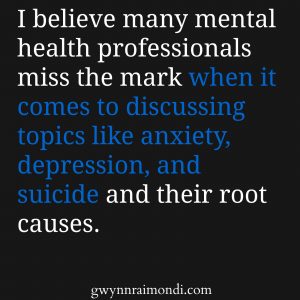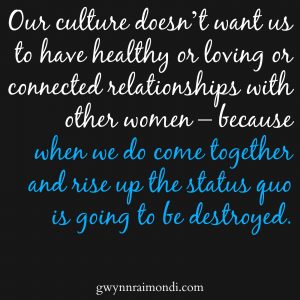Human freedom involves our capacity to pause between the stimulus and response and, in that pause, to choose the one response toward which we wish to throw our weight. The capacity to create ourselves, based upon this freedom, is inseparable from consciousness or self-awareness. ~Rollo May, The Courage to Create
she learned to walk away
from everything
that didn’t inspire her
toward greater things
~Mark Anthony
a successful life is created
with two words: yes and no
have the courage to say yes
only when it feels right
and no to the old patterns
that do not serve you
~yung pueblo
One way that complex trauma impacts us in our adult lives is in our relationships, be they with friends, family, or intimate partners. Many of us with complex trauma are not good at tolerating painful emotions, like sadness, frustration, or disappointment.
In fact, most of us don’t have a lot of tolerance for the more “positive” emotions like happiness, joy, and pleasure either.
Any feeling – sensation and emotion – can feel too much and can trigger our fight/flight/freeze/fawn response. The feelings can be overwhelming and so we need a way to release them, to get them out of us, because actually feeling them is intolerable.
So, we start fights. Or turn away and cut people out of our lives. In the moment we may freeze and feel stuck or placate and people please and then later move into the space of either wanting to fight or flee. Depending on the situation we do one or the other of these or we do some in rapid succession.
Our reaction is generally immediate and coming directly from our back (or reptile) brain. There is no thought that is going into it. We don’t slow down to engage our front brain and are fully in our survival instinct. Because feeling our feelings feels like our actual lives are in danger. It feels like they might consume us. It feels like we won’t survive the sensations and emotions that are swirling within us.
I know for me a go to reaction was always to flee. And by flee I mean turn my back and cut people out of my life. One disappointment, one time of feeling rejected or abandoned, and it was “proof” that the person wasn’t trustworthy and therefore I needed to shut them out of my life. My armor would go up and if need be I would start fights if they wouldn’t “let” me leave.
It has taken a lot of time, therapy, practice, patience, and self compassion to find my way to pause between the action of an emotion being activated and responding.
Because for most of my life I reacted, immediately, and without thought. What I want for my life, for my relationships, is for me to be able to thoughtfully respond, to slow down and evaluate the facts of the situation and previous situations so that I can respond intentionally and mindfully.
This has meant coming into my body. This has meant learning to tolerate all those intolerable sensations and emotions. This has meant practicing keeping my front brain (where logic, reasoning, creativity, problem solving, and compassion live) online while also experiencing the sensations and emotions that live in my back brain.
It hasn’t meant stuffing my feelings down.
It has meant allowing myself to experience them and learning to know they won’t actually kill me. They will be uncomfortable, I may not like it, but I certainly won’t die.
When we are able to engage our front brain while also experiencing our feelings, we can begin to look at situations more objectively. We can look for patterns, for habits, for cycles. We slow down not to make excuses for the other person, but to see if our own pain is actually stemming fully from something they did or said or if it also stems from a long ago wound that never healed.
And then we can decide how we want to respond to the person. We can intentionally decide if this is an opportunity for our own personal growth and processing. We can decide if it is an opportunity for us to communicate our needs, to repair in relationship and to stay. Or to communicate our needs, set a boundary, and possibly leave.
It is true that when another person triggers our feelings of disappointment, frustration, abandonment, and or betrayal that it was indeed their action or words that did this. It is true that our hurt is in part due to the what the other person did or said.
And.
They don’t deserve the full force of our fury or rage or pain, most of which comes from past hurts from others we trusted.
Sometimes when another person triggers our painful feelings it isn’t intentional, or may be a matter of circumstance or what they did or said is actually a perfectly reasonable or normal thing, but it sets off our alarms anyhow. Sometimes these triggers are not an indication of who they are as a person.
And honestly, sometimes it is.
Which is why we need the pause. So we can slow ourselves down and determine what we actually know about the other person. What we actually know about ourselves. What patterns we have seen. What other actions and words we have witnessed or not.
We need the pause so we can engage our frontal lobe and respond in a way that lets us stand in our own integrity and authenticity. Without needing to cause another pain. Without lashing out. Without cutting people out because in that moment we are hurting and find it unbearable.
The pause requires us to be in our bodies, to be able to tolerate uncomfortable even painful emotions and sensations. It also allows us to enjoy the fun and pleasurable emotions and sensations that can also a part of living as a human.
Learning to live embodied, to tolerate, experience, and sometimes even enjoy the sensations and emotions of our fully human lives is a life long process. There are not five easy steps and then you are done. It is not a one time thing we can check off. It is a constant practice that will have its own ebbs and flows.
The pause will not come to us quickly. It will take time. At first you will notice while you are reacting that you are indeed having an immediate response. With time you will be able to “bring yourself down” more smoothly and quickly. Then, you will begin to notice that you are about to lash out and eventually stop it. In more time, with more practice, you will be able to catch yourself at the very beginning of being triggered. You will be able to feel the sensations and emotions and also be able to explore them, analyze them and the situation logically. And then intentionally decide how we want to respond.
Having patience and compassion for ourselves during this process, while learning to come into our body and to tolerate all the different, varied, and nuanced sensations and feelings and learning how to find that breath, that pause, when some or all our old wounds are triggered is vital and part of the process.
It is true that what was done to us by others is not our fault, we are not to blame for their actions. And we are responsible to learn to respond to new hurts in ways that hold us in our own integrity, in a way that does not continue to pass on harmful patterns, in ways that allow us to break painful cycles for ourselves and the generations to come.
/…/
To read more of my essays, you can subscribe to my weekly(ish) newsletter here.
 As I continued talking in my session, I realized how I believe many mental health professionals miss the mark when it comes to discussing topics like anxiety, depression, and suicide and their root causes. How they ignore the impacts living in this culture has on all of us. How the interconnections and intersections of our own lived experiences, our culture, and our ancestral history affect us. How living in a culture where women and girls are only seen as valuable when it comes to the male gaze. How sexual assault and harassment take their toll on our mental and physical health – DAILY – whether we have personally experienced either or now. How witnessing rape and or being raped impact us to the point of considering and for some attempting suicide (According to the National Center for PTSD, it’s estimated that one in three women who have been raped contemplate suicide, and one in 10 victims attempt it.) How culturally it is more important to us to protect rapists than the person who was raped. (Remember how Brock Turner received an incredibly lenient sentence because the (white male) judge didn’t want to impact Brock’s precious future?)
As I continued talking in my session, I realized how I believe many mental health professionals miss the mark when it comes to discussing topics like anxiety, depression, and suicide and their root causes. How they ignore the impacts living in this culture has on all of us. How the interconnections and intersections of our own lived experiences, our culture, and our ancestral history affect us. How living in a culture where women and girls are only seen as valuable when it comes to the male gaze. How sexual assault and harassment take their toll on our mental and physical health – DAILY – whether we have personally experienced either or now. How witnessing rape and or being raped impact us to the point of considering and for some attempting suicide (According to the National Center for PTSD, it’s estimated that one in three women who have been raped contemplate suicide, and one in 10 victims attempt it.) How culturally it is more important to us to protect rapists than the person who was raped. (Remember how Brock Turner received an incredibly lenient sentence because the (white male) judge didn’t want to impact Brock’s precious future?)